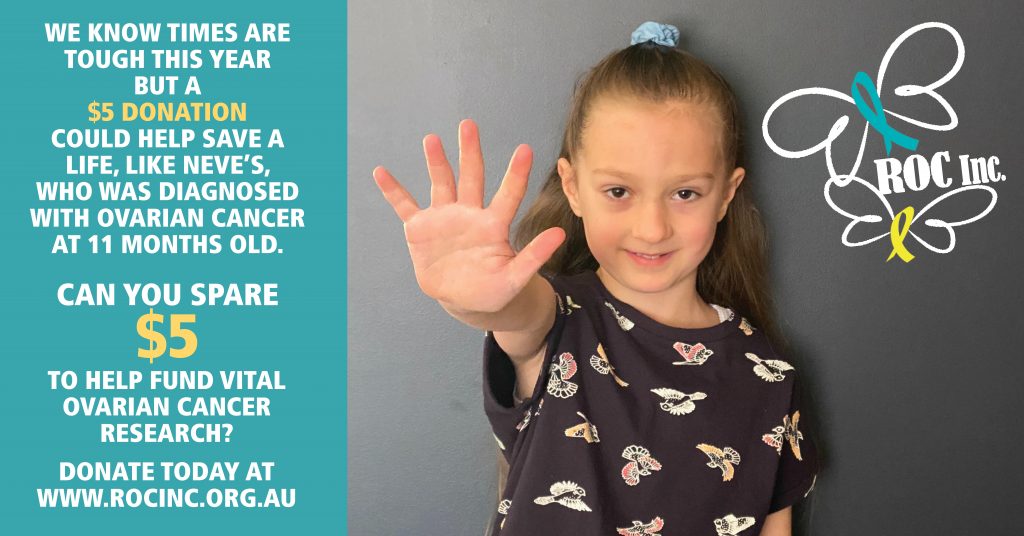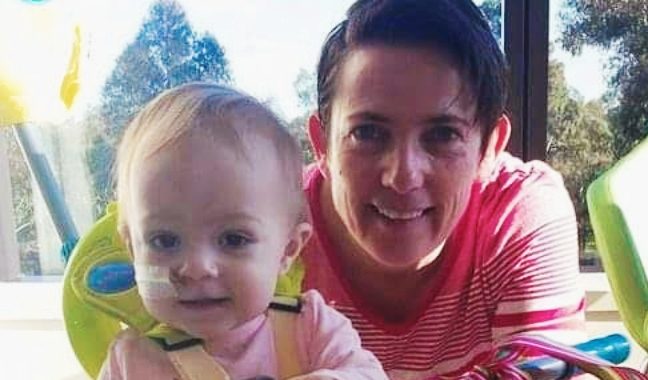11-month-old baby Neve’s ovarian tumour was bigger than a softball.
Imagine being diagnosed with ovarian cancer as a baby. Unfortunately, this was the confronting reality Neve and her parents Jo and Zoe found themselves in on August 1, 2014.
Aged just 11 months old, Neve was diagnosed with Juvenile Granulosa Cell Tumour (jGCT) – a recurrent, incurable ovarian cancer that has no effective treatments available post-surgery.
Most people associate ovarian cancer as a disease affecting adult women. Few people know that ovarian cancer can be diagnosed at any age and affects females of all ages. So little is known about the rarer forms of ovarian cancer like jGCT. Hard to comprehend when it’s the eighth most common cancer affecting females in Australia.
Neve had already endured a dramatic start to life. Doctors at Bendigo Hospital in Victoria were forced to perform an emergency caesarean on August 22, 2013. Neve left the hospital a happy, healthy baby and settled in well at home.
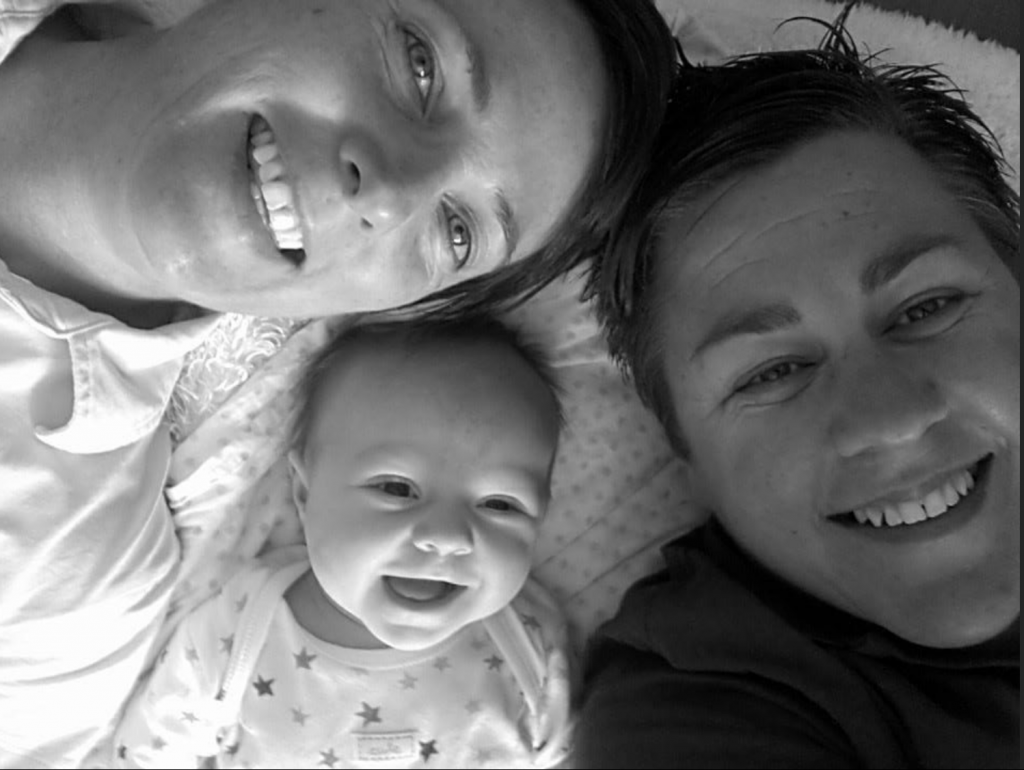
Tragically, her symptoms were originally misdiagnosed in July 2014. Parents Jo and Zoe took Neve to her local doctor who dismissed it as teething issues. Her parents weren’t convinced. They took Neve to Bendigo Hospital for a second opinion. That’s when everything changed. The doctors conducted scans which revealed a tumour larger than a softball in Neve’s pelvic area.
Neve was showing symptoms of high temperatures and an enlarged tummy. Neve was so unwell it was frightening. Jo recalls “I still remember the ambulance ride to the Royal Children’s Hospital in Melbourne, and the feeling that I’m about to lose my daughter”.
“To see her in pain and diagnosed with ovarian cancer at her age was very confronting for both myself and Zoe. You hear about cases of kids getting cancer, but when you have to experience it first-hand yourself, it is a whole new level. It was pure disbelief” Jo said when reflecting on Neve’s earth-shattering diagnosis.
Following all the seemingly endless tests, surgery and final diagnosis, over the next four long months Neve and her parents had to prepare to start the gruelling chemotherapy regime in hospital.
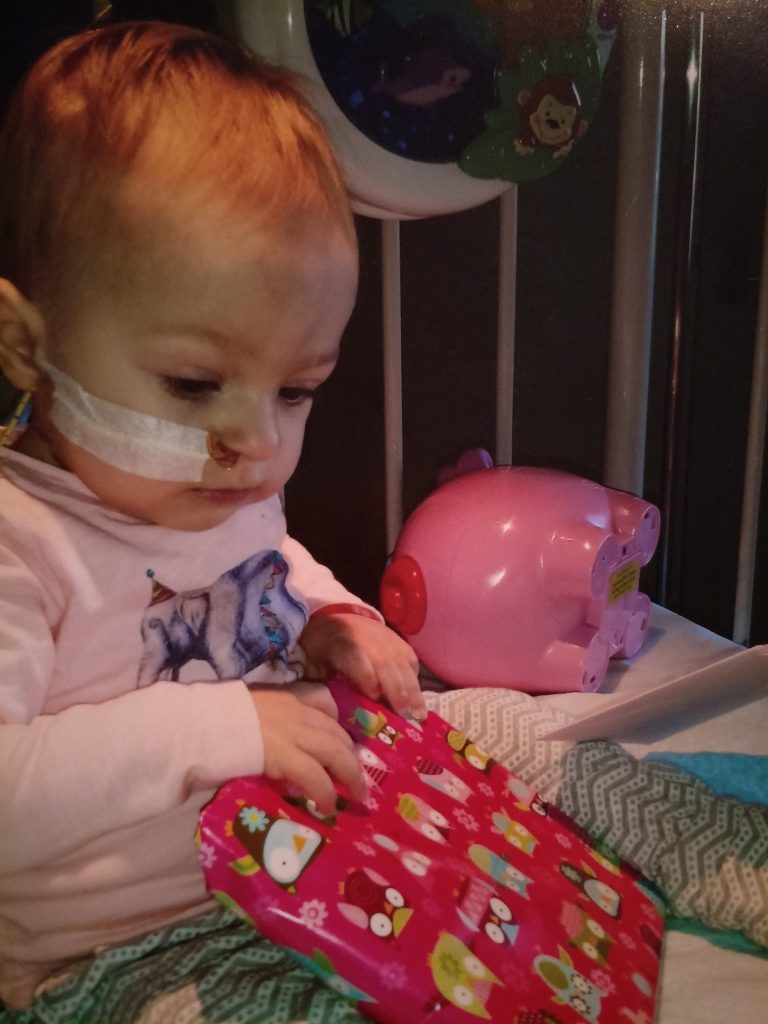
“We were in a state of disbelief. Days turned into weeks and nothing really mattered. How does a baby, a child, have ovarian cancer? Is that even possible? We now know that ovarian cancer affects females of all ages. “Eventually our tears had to stop…. we just had to steel ourselves together and be there for Neve” Jo reflects
Neve still currently has regular testing to monitor this rare recurrent cancer that until recently had previously received no research for answers for the future “We know we are going to have some tough days in the future. We have lots of questions about the long-term effects of chemotherapy on her body that was given for her type of ovarian cancer. Knowing that Granulosa cell cancers have a recurrent nature that is they come back over a long length time and requires a life time of monitoring is difficult. The recurrences are generally chemotherapy resistant and tend to be highly aggressive with a poor prognosis. This is why it is critical to find ways to treat this disease not only for Neve but females everywhere and their families. We are so grateful that ROC Inc continues to fundraise to support Granulosa Cell Tumour (GCT) research. At the moment Neve is a seven-year-old girl, happy and living her life,” Jo said.

The whole family is actively looking to find answers for the future of Juvenile Granulosa Cell Tumour, all while becoming advocates and fundraising for Rare Ovarian Cancer Incorporated (ROC Inc.)
Jo, Zoe and Neve travelled to Illawarra to be guest speakers at the first ever Rare Ovarian Cancer Incorporated (ROC Inc.) Gala Dinner to raise awareness for ovarian cancer and funding for research. Alongside them were jGCT researcher Dr Simon Chu from the Hudson Institute of Medical Research in Melbourne and Medical Oncologist Prof. Paul Harnett, Director of Crown Princess Mary Cancer Centre at Westmead Hospital. Neve was able to meet Mikayla and Monique who were also diagnosed with jGCT ovarian cancer at just 16 and 19 years old. All three of the girls are participating in the world first and largest research for jGCT.
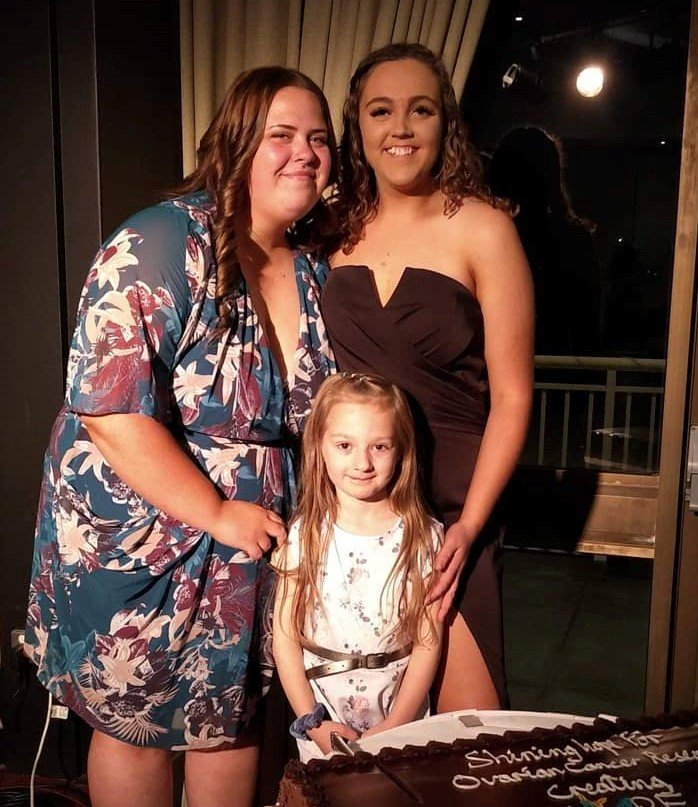
The Australian Government has identified that the lack of research on uncommon or rare cancers is an area of concern. ROC Inc lobbying for this research for this underfunded and under researched ovarian cancer and it paid off. Almost a year ago on May 8th 2020 on World Ovarian Cancer Awareness Day Australia’s Health Minister Hon. Greg Hunt announced a $2.2million grant over 5 years awarded to ROC Inc’s research partners at the Hudson Institute of Medical Research For A New Era Towards Research For Granulosa Cell Tumours (GCT). This is the first time in Australia’s history that jGCT has ever received federal funding for research! Research is key for the future for treatment, intervention, prevention and as a diagnostic tool. on 9th February This research gives the opportunity to move forward to find treatment options and clinical trials.
Neve’s story highlights that we all need to be aware of the symptoms no matter your age, be aware of your body and any changes that are new for you as ovarian cancer affects females of all ages.

The statistics for ovarian cancer can be very confronting;
Almost 1600 Australian females will be diagnosed with ovarian cancer this year.
That’s four females a day are diagnosed with ovarian cancer and three will die from this disease.
Approximately 75% of the newly diagnosed females will be at late stages when it is very hard to treat.
Ovarian cancer is the deadliest and least understood of all gynaecological cancers.
About 70% of females with ovarian cancer will face a recurrence.
A pap smear does not detect ovarian cancer. There is no early detection test.
The 5-year survival rate is 46%, compared to breast cancer’s 5-year survival of 91% and way below the national average for all cancers 5-year survival of 69%.
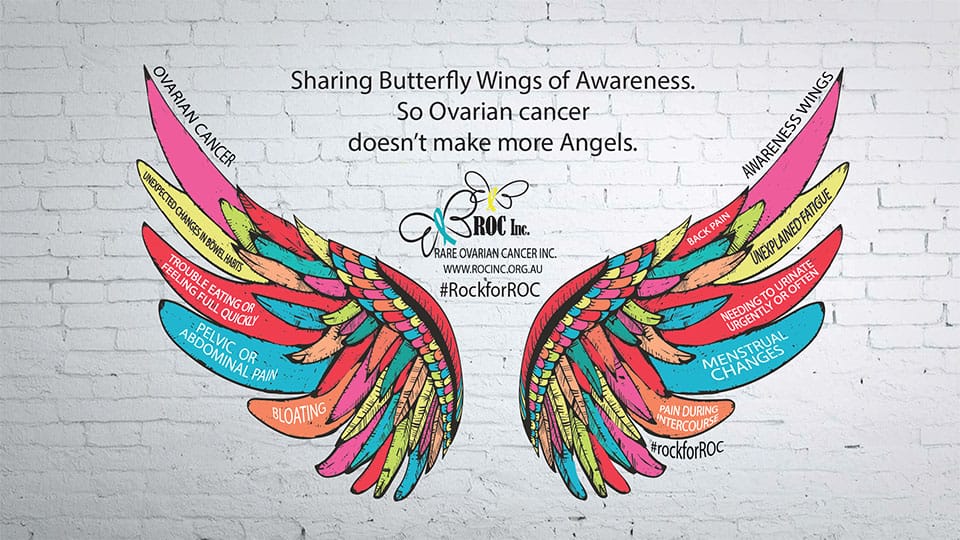
Being aware of the symptoms it may save your life or someone you care about;
* Bloating * Back, pelvic or abdominal pain * Trouble eating or feeling full quickly
* Feeling the need to urinate urgently or often * Unexpected changes in bowel habits
* Unexplained fatigue * Menstrual changes
If these symptoms are new and persist for more than 2 weeks, consult your GP.
